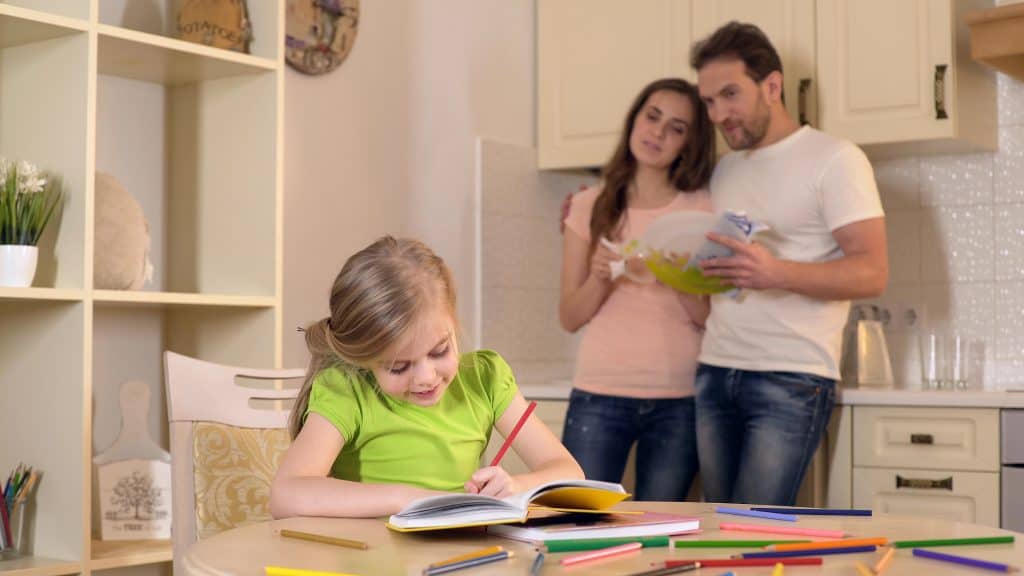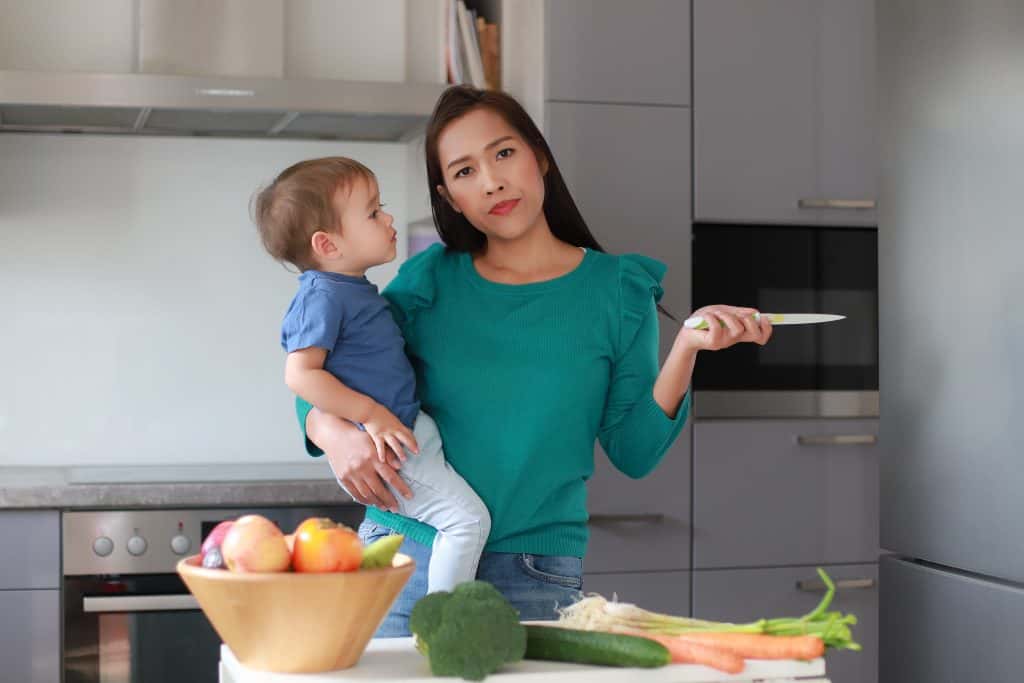We all know “old kids”, children mature for their age who don’t behave according to their age. They look after their younger brothers and sisters, getting them ready for school, bathing and dressing them.
They prepare meals for the whole family and very often become their parents’ parents, taking care of their needs. Society approves of this phenomenon, admiring the parents and the child, even evaluating it as socially desirable.
This process of children taking over the role and responsibilities of parents is called parentification. The organization of the family system clearly defines the boundaries, roles and responsibilities of its members.
In a family with clearly defined roles and boundaries, parents work and earn a living, providing security for family members, while children grow up and go to school.
Children are given the opportunity to play and enjoy their childhood, so that they can grow into healthy individuals with responsibilities for the years ahead.
Parentification of a child in family systems occurs when one or both parents are immature and inaccessible, so that more often than not the eldest assumes the role of the one who takes care of the family, its existence and its security.
This process of child parentification often occurs in families where alcoholism or other forms of addiction are present.

Other causes of parentification include
- the parent is disabled or suffers from a serious health problem
- insufficient emotional support from other adults
- the parent was neglected or abused as a child
- suffers from a mental illness
In addition, financial difficulties, divorce or the illness of a sibling can create conditions that can lead to parentification.
The child takes care of the dysfunctional parent, his or her needs and security, hiding the problem from the environment.
Also, in single-parent families, in the event of divorce, illness or death of a family member, the child functionally replaces a parent. The child knows the parents’ financial problems, emotional needs and feelings, taking a huge burden on his or her little back.
He feels terrified when he hears things that are beyond his ability to understand and interpret.
The consequences for child-parents are very serious. Some of them, when they grow up, repeat the same process with their children, expecting them to carry the same burden as those of their childhood.
A child-parent’s childhood is a life of loneliness, with no friends, peers or relatives to turn to for help and advice. Parentified children, as they grow up, may choose partners to continue parenting.
This relationship dynamic is highly detrimental to the partnership because of the resentments and conflicts that color the relationship.
What are the different types of parentification?

Experts have identified two distinct types of parentification: instrumental and emotional. In addition, parentification can be either parent-focused or sibling-focused. Parent-centered parentification describes caregiving directed at the parent or primary caregiver.
Sibling-focused parentification indicates that the child or adolescent has assumed a caregiving role towards one or more siblings.
In cases of instrumental parentification, children assume practical responsibilities such as :
- caring for siblings or other family members because a parent is unable to do so
- taking on household chores, such as cleaning, cooking and grocery shopping
- pay bills and take care of other household chores
- acting as translator in families where the parent does not speak the main language of the country of residence
Emotional parentification involves the child :

- listens to a parent talk about his or her problems
- gives advice to a parent
- mediates between a parent and another family member
- acting as a confidant for a parent
- providing comfort and emotional support to a parent
The difference between parentification and healthy communication

To be clear, it’s not always a bad thing for a parent to talk to a child or teenager about how they’re feeling, in an age-appropriate way. In fact, children may feel confused or blame themselves if they know a parent is unhappy, but don’t understand what’s making them sad.
But parents shouldn’t ask children to help them cope with their emotions.
On the other hand, there’s nothing wrong with children helping out around the house or occasionally looking after younger siblings, or even a parent if he or she is briefly ill.
In fact, taking on family responsibilities – to an appropriate extent – can give a child a sense of satisfaction and competence. However, helping out at home must not be to the detriment of the child’s or teenager’s emotional or physical health.
Nor should it interfere with their studies, peer relationships or other “tasks” of adult life.
In short, children should never feel that they are responsible for their parents’ happiness or the family’s safety.
What are the symptoms and consequences of parentification?

Parentification creates a state of chronic stress and relational trauma. It is also a form of parental neglect. As a result, it has both short- and long-term effects on the child’s life.
And the earlier it is addressed, the more negative the consequences for the child.
A parentified adolescent or young child may present the following symptoms:
- Anxiety, particularly about caring for others
- Depression
- Suicidal thoughts
- Compulsive overwork to meet responsibilities at school and at home
- Feelings of guilt and shame
- Incessant worry
- Social isolation
- Physical symptoms of anxiety and depression, such as stomach aches, headaches, etc.
Long-term effects of parentification

The impact of parentification continues into adulthood. Research shows that negative childhood experiences increase the likelihood of mental and physical health problems.
The permanent stress generated by such experiences actually modifies the brain. It shrinks the hippocampus, the part of the brain that regulates memory, emotions and stress management.
As a result, adults who have been parentified in childhood or adolescence may experience the following problems:
- Inability to trust others
- Involvement in violent or unhealthy relationships
- Inappropriate sense of entitlement or authority
- Difficulty functioning independently
- Increased risk of chronic physical illness
- Higher risk of anxiety, depression, substance abuse disorders and eating disorders
So remember this:

- When you “hang out” with your kids, when you complain about your adult life, when you demonstrate your inability to cope with your losses and defeats ;
- When you fill the voids of your loneliness with children’s souls, when you force a child to cover your painful habits;
- When you seek your child’s loyalty and gratitude in the form of attention or compassion for “everything you’ve done for them”.

